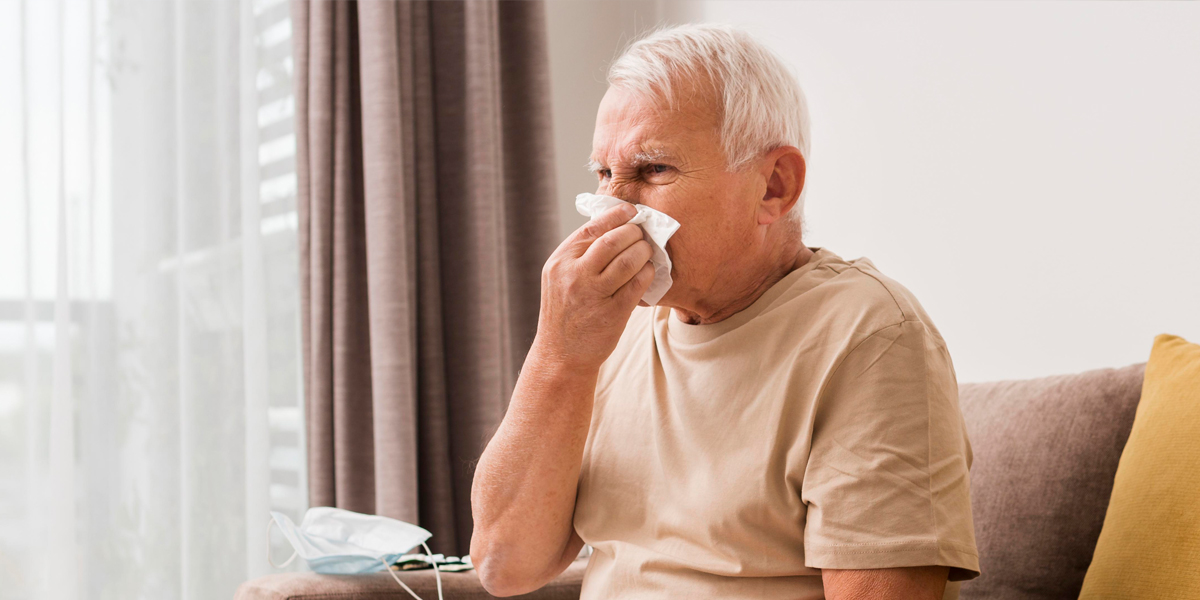Although the arrival of spring generally has positive connotations for most people, for others it can mean the onset of health, well-being and mood disorders. This is even more so in the case of the elderly, who often suffer from other pathologies that can be affected by these symptoms.
For many people, the arrival of spring has many positive connotations. With the increased daylight hours and warmer temperatures leading to metabolic adjustments including increased secretion of pheromones, oxytocin, dopamine and noradrenaline.
These changes are often described as springtime euphoria and characterised by an increase of activity, a higher level of energy and a general improvement in our mood.
But what happens when these changes negatively affect our health and well-being? The opposite effect is called spring asthenia, an adaptive disorder associated with these changes and of varying intensity.
Its main symptoms are apathy or decreased motivation, a general feeling of tiredness, difficulties in concentration, sleep disturbances and difficulty in falling asleep, episodes of anxiety and irritability, decreased appetite, or the appearance of headaches.
Often these changes can lead to digestive disorders, which in turn can cause dental problems and the development of canker sores in the oral cavity. We also cannot ignore the effect these can have on our sleep and rest which is essential for maintaining an adequate immune system that is key to preventing disorders such as periodontitis or gum disease.
Allergies and their relation to oral health
We also need to remember that during springtime, allergies are common and are caused by an excessive immune response to certain substances, mainly of environmental origin such as pollen or soil particles present in the air. These elements induce the secretion of histamine, a powerful vasodilator responsible for fighting the effect of these allergens.
However, histamine secretion results in symptoms that can be very uncomfortable. These include sinusitis, characterised by the excessive generation of mucus that tends to accumulate in the forehead and sinuses, dry mouth and itchy throat resulting from increased breathing through the mouth due to the difficulty of breathing through the nose, and the associated dry coughing and sneezing.
In addition, many of the antihistamines often prescribed to allergic patients increase dry mouth and throat, which can exacerbate these symptoms. This accumulation of mucus, dry coughing and sneezing leads to increased tension in the muscles of the jaw and molars, especially the back teeth, which can lead to dental pain and headaches.
As we can see, the arrival of spring can have a major impact on health, well-being and mood, and even more so in the case of the elderly, who often suffer from other pathologies that can be affected by these symptoms. The question is, what can we do?
Nutrition and oral hygiene, key issues
From Lura Care we remind you that it is vital to ensure proper nutrition and hydration, which, although already a general rule, becomes even more important during these months.
We must ensure a sufficient intake of water of at least 2 litres a day, and promote a diet rich in vitamins, fibre and proteins. This type of diet contributes to the proper functioning of the nervous system and stimulates the production of neurotransmitters that regulate emotions.
Ideally, this intake should be distributed over 5 meals a day, trying to maintain a regular schedule, and avoiding excessively large meals in order to avoid heavy digestion.
And of course, we cannot fail to mention the importance of maintaining optimal oral hygiene. We must not allow the discomfort associated with these conditions to serve as an excuse for neglect, so we must promote our oral hygiene habits even more.
The aim is to avoid the possibility of other disorders that may worsen this discomfort, such as dental pain that may contribute to greater irritability or interfere with a good night’s rest.
For this reason, brushing your teeth three times a day and using dental floss to remove dirt and food debris are very important. It is also highly recommended to use a mouthwash after brushing, which will help to keep our mouth and throat clean by gargling, and also helps to eliminate symptoms of dry mouths and sore throats.

